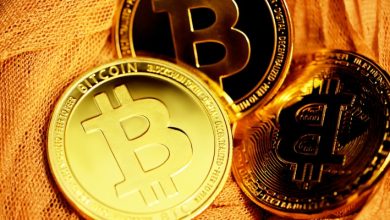The Impact of Decentralized Finance on New Token Creation

- Understanding Decentralized Finance (DeFi)
- The Rise of New Token Creation in DeFi
- Challenges and Opportunities in Decentralized Finance
- Exploring the Role of Smart Contracts in Token Creation
- Regulatory Considerations for DeFi Token Issuance
- The Future of Token Creation in Decentralized Finance
Understanding Decentralized Finance (DeFi)
Decentralized Finance (DeFi) is a revolutionary concept that is changing the way we think about traditional financial systems. DeFi leverages blockchain technology to create a more open and accessible financial ecosystem that is not controlled by any central authority. This decentralized approach allows for greater transparency, security, and efficiency in financial transactions.
One of the key aspects of DeFi is the ability to create new tokens on decentralized platforms. This process is known as token creation and it has opened up a world of possibilities for individuals and businesses looking to innovate in the digital asset space. By leveraging DeFi protocols, users can create their own tokens without the need for a centralized authority to approve or oversee the process.
The impact of decentralized finance on new token creation cannot be understated. It has democratized access to the creation of digital assets, allowing anyone with an internet connection to participate in the token economy. This has led to a proliferation of new tokens being introduced to the market, each with its unique use case and value proposition.
In conclusion, understanding decentralized finance and its impact on new token creation is essential for anyone looking to navigate the rapidly evolving landscape of digital assets. By embracing the principles of DeFi and exploring the possibilities of token creation, individuals and businesses can unlock new opportunities for financial innovation and growth.
The Rise of New Token Creation in DeFi
In the realm of decentralized finance (DeFi), the rise of new token creation has been a prominent trend. This phenomenon has been fueled by the increasing popularity of DeFi platforms and the desire for more diverse investment opportunities. As a result, we have witnessed a surge in the creation of new tokens that cater to specific niches and provide unique functionalities to users.
One of the key drivers behind the rise of new token creation in DeFi is the democratization of finance. By leveraging blockchain technology, individuals can now create their own tokens without the need for traditional financial intermediaries. This has empowered entrepreneurs and developers to experiment with new ideas and bring innovative projects to life.
Moreover, the decentralized nature of DeFi allows for greater flexibility and customization in token creation. Developers have the freedom to design tokens that align with their vision and goals, without being constrained by centralized authorities. This has led to the emergence of a wide array of tokens with different use cases, ranging from governance tokens to utility tokens.
Another factor contributing to the growth of new token creation in DeFi is the concept of liquidity mining. This practice involves incentivizing users to provide liquidity to decentralized exchanges by rewarding them with newly created tokens. By participating in liquidity mining programs, users can earn passive income while also contributing to the liquidity of DeFi platforms.
Overall, the rise of new token creation in DeFi represents a paradigm shift in the world of finance. It has opened up new possibilities for innovation and experimentation, allowing individuals to take control of their financial destiny. As this trend continues to evolve, we can expect to see even more diverse and innovative tokens being created in the DeFi ecosystem.
Challenges and Opportunities in Decentralized Finance
One of the key challenges in decentralized finance (DeFi) is the lack of regulatory oversight. This can lead to concerns about security and the potential for fraudulent activities. However, this also presents an opportunity for innovation and experimentation in the financial sector. By leveraging blockchain technology, DeFi platforms can offer users greater control over their assets without relying on traditional financial institutions.
Another challenge in DeFi is the issue of scalability. As more users participate in DeFi platforms, the network can become congested, leading to slower transaction times and higher fees. To address this challenge, developers are exploring solutions such as layer 2 scaling solutions and interoperability between different blockchains.
On the other hand, DeFi presents exciting opportunities for new token creation. Through decentralized exchanges and liquidity pools, projects can easily launch their tokens and raise funds without the need for traditional intermediaries. This can democratize access to investment opportunities and empower a wider range of individuals to participate in the financial markets.
Overall, while DeFi comes with its own set of challenges, it also opens up a world of possibilities for innovation and disruption in the financial industry. As the space continues to evolve, it will be important for stakeholders to collaborate on solutions that address the challenges while maximizing the opportunities presented by decentralized finance.
Exploring the Role of Smart Contracts in Token Creation
Smart contracts play a crucial role in the creation of tokens within the realm of decentralized finance. These automated agreements are coded to execute specific actions once certain conditions are met, providing a transparent and secure way to manage token issuance and distribution. By leveraging smart contracts, token creators can establish rules for their tokens, such as supply limits, distribution schedules, and governance mechanisms. This level of programmability enables a wide range of possibilities for token creation, empowering developers to customize their tokens to suit various use cases.
One of the key benefits of using smart contracts for token creation is the elimination of intermediaries. By automating the token issuance process, creators can reduce costs and increase efficiency, as smart contracts execute transactions without the need for third-party oversight. This not only streamlines the token creation process but also enhances security by reducing the risk of human error or manipulation. Additionally, smart contracts enable tokens to be traded peer-to-peer without the need for a centralized exchange, further decentralizing the financial ecosystem.
Another advantage of smart contracts in token creation is their ability to facilitate complex financial arrangements. Through the use of programmable logic, creators can implement sophisticated tokenomics that govern how tokens behave in various scenarios. For example, smart contracts can enable tokens to automatically distribute rewards to holders based on predefined criteria or execute buyback mechanisms to stabilize token prices. This level of automation and customization opens up new possibilities for token design and utility, allowing creators to innovate and experiment with novel token models.
In conclusion, smart contracts are a powerful tool for token creation in decentralized finance, offering a range of benefits such as increased transparency, efficiency, and security. By leveraging the programmability of smart contracts, token creators can design tokens that align with their specific goals and requirements, enabling them to explore new avenues for innovation in the rapidly evolving landscape of decentralized finance.
Regulatory Considerations for DeFi Token Issuance
When considering the issuance of DeFi tokens, it is crucial to take into account the regulatory landscape. The decentralized nature of DeFi projects presents unique challenges in terms of compliance with existing financial regulations. It is important for token issuers to be aware of the potential legal implications of their actions.
One key consideration is whether the tokens being issued qualify as securities under relevant laws. Securities regulations are designed to protect investors from fraud and ensure transparency in the financial markets. If a token is classified as a security, it may be subject to strict regulatory requirements, such as registration with the appropriate authorities.
Another important factor to consider is the potential for money laundering and terrorist financing in the DeFi space. Regulators are increasingly focused on combating financial crime, and token issuers must take steps to prevent their platforms from being used for illicit purposes. Implementing robust anti-money laundering and know-your-customer procedures is essential to staying compliant with regulations.
In addition to securities and anti-money laundering regulations, token issuers must also consider tax implications. The tax treatment of tokens can vary depending on the jurisdiction, and it is important to consult with legal and tax advisors to ensure compliance with local laws. Failure to properly account for taxes can result in significant penalties and legal consequences.
Overall, navigating the regulatory landscape for DeFi token issuance requires a thorough understanding of securities, anti-money laundering, and tax regulations. By staying informed and seeking professional advice, token issuers can mitigate legal risks and build a solid foundation for their projects. Compliance with regulations is essential for the long-term success and sustainability of DeFi platforms.
The Future of Token Creation in Decentralized Finance
The future of token creation in decentralized finance is promising, with innovative solutions emerging to streamline the process. One such solution is the use of smart contracts on blockchain platforms like Ethereum. These smart contracts enable the creation of custom tokens without the need for intermediaries, reducing costs and increasing efficiency. As decentralized finance continues to grow in popularity, we can expect to see a rise in the number of unique tokens being created for various purposes.
Token creation in decentralized finance is also becoming more accessible to a wider range of users. With the advent of user-friendly interfaces and tools, even those without deep technical knowledge can create their own tokens. This democratization of token creation has the potential to spur innovation and creativity in the decentralized finance space, leading to a diverse array of new tokens with unique features and use cases.
Furthermore, the future of token creation in decentralized finance is likely to be shaped by regulatory developments. As governments around the world begin to establish clear guidelines for token issuance and trading, we can expect to see a more stable and secure environment for token creation. This regulatory clarity will help to legitimize decentralized finance and attract more traditional investors to the space, driving further growth and innovation in token creation.
In conclusion, the future of token creation in decentralized finance looks bright, with advancements in technology, accessibility, and regulation paving the way for a new era of token innovation. By leveraging smart contracts, user-friendly tools, and regulatory clarity, decentralized finance is poised to revolutionize the way tokens are created and used in the financial industry. As the ecosystem continues to evolve, we can expect to see a surge of new tokens that offer unique value propositions and contribute to the expanding landscape of decentralized finance.



